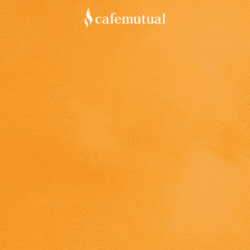The Sumit Bose committee has recommended a host of measures related to MF costs and commissions paid to distributors. FIFA, a pan India body of IFAs, has submitted its views on the Sumit Bose committee report to SEBI recently. FIFA has joined hands with a number of other local/regional associations of IFAs to form an United Forum to represent IFAs across the country and submitted their consolidated feedback to SEBI.
Here are FIFA’s views on the committee’s recommendations related to costs and commissions:
Committee: The cost caps within an overall TER should not be fungible
FIFA: The manufacturers should be allowed to manage costs and profits. The regulator should prescribe overall costs and not micro manage sub costs. The overall TER prescribed must exclude all taxes - for example service tax must be an automatic pass through to the consumer.
Currently service tax on AMC fees is allowed to be charged to consumer over the TER fixed by regulations but is not allowed in respect of brokerage/commissions and other expenses. This anomaly must be corrected at the earliest.
Committee: Upfronting of commissions should be totally removed. There is a current cap of 1 per cent that comes from the fund house capital or profits. This too should be removed.
FIFA: There needs to be flexibility in payment of commissions. The cost to customer is the same irrespective of how commission is paid whether by way of trail or by upfronting. As cost to consumer is not going up, upfronting of commissions should not be totally removed.
While abolishing the upfront commission can be a populist measure, removing it altogether will serious affect the efforts to expand the base of the industry. It is only by attracting a large number of new IFAs into the professions – the mutual fund industry has 1 lakh registered agents versus more than 21 lakh registered agents in insurance – will mutual funds get acceptance in every household. New entrants have to put in tremendous efforts as in any other profession. Acquiring new clients, especially considering a low conversion rate on account of poor perception of mutual funds and aversion of investors to invest in market linked products, remains an expensive proposition. It is not a mere acquisition of clients but also about changing the mindset of investors who for long have got used to investing in guaranteed return but inferior products. Hence the need to support them with upfronts. It may be noted that a large number of established IFAs have already moved voluntarily to an all trail model as after having built a reasonable size, as they do not need upfronts for business viability and trail commission gives adequate regular cash flows. The extra incentives given for B-15 expansion are also largely paid as upfronts and these need to be continued to achieve goals of geographic penetration. Hence the need to have flexibility for meeting governments goals of financial inclusion and retail penetration. The IFA channel has seen a voluntary adoption of the all trail model which may not be the case in the other channels. Selective restrictions/penalties should be imposed in case of a channel or distributor mis-using upfronts for mis-selling. Onus needs to be put on AMCs also to ensure that the upfronts paid are not misused. AMCs as principals set the incentive structure and should be made responsible to see that the incentives are designed to achieve the right sales process. They should be equally made liable for wrong sales practice.
Committee: Distribution commissions should only be paid as level or reducing AUM based trail. In the case of lumpsum investment, or upon termination of a systematic investment plan, the trail commission should be declining (or nil after a specified period of time).
FIFA: Level trail commissions or a step up trail commissions must be paid till the money is invested - as it rewards long term. It will be a disaster if trails were to be stopped or reduced.
Once the investments are suggested in a particular scheme, they need to be continuously monitored for their effectiveness, performance, rebalancing and suitability of the client. Considering that a large number of investors have the tendency to redeem once they see healthy profits in equity or equity oriented funds, it requires a serious effort on the part of advisors to convince them to remain invested and create wealth. Reducing AUM based trail may fail to motivate the distributor to put in the required time and effort for such analysis.
It may be also noted that for distributors and IFAs the costs of investments in infrastructure and other operational costs required for continuous monitoring of client portfolios for performance, rebalancing effectiveness and suitability keep rising. Reducing AUM based trail will discourage the distributor to invest in infrastructure and operations. Reducing AUM trail will lead to higher commissions on new assets and lower/nil commission on old assets. This could encourage unnecessary churning of old assets. An investor even after having been invested for a long period, during the prolonged periods of market downturn (like 2008 to 2010) needs the distributor to handhold him to remain invested and enable him to reap the benefit of wealth creation and compounding over long term. Obviously an IFA during this phase also has to spend a lot of time, energy and effort to hand hold customers and incurs cost for the same. If the trail commission should decline or become NIL after a specified period of time as suggested then the distributor will have no incentive to service the clients during these periods. Hence, it is only fair that distributors get trail commission throughout the period during which an investor remains invested. “If the distributor is only remunerated for the initial few years and deprived of trail commission, as is proposed in the committee report, the distributor will have no incentive to make the investors stay in the fund for a long term, which is very much against the tenets of sound investing.”
Committee: The extra commission in B15 should be removed and a level playing field be created in the country. Manufacturers and distributors should on their own tap such unexplored markets to increase their sales and market share.
FIFA: The B-15 incentive should continue. Extra incentives for achieving Government/national goals should be allowed. The B-15 incentive in mutual funds was given for achieving the Government/national goal of geographic dispersion and retail penetration of financial products beyond the top15 cities. The regulations for B-15 were introduced about 18 months back we need to give sufficient time (say 5 years) to judge its impact before making any changes. Initial feedback from industry sources indicate that there has been a positive impact.
Committee: No category of mutual funds should be exempt from the zero upfront (when it is put in place).
FIFA: We believe that exemptions should be allowed. There should be flexibility. Products like ELSS and retirement funds will suffer in the absence of any upfront commission. If the committee feels that upfront commission should continue for pure risk products as it is very difficult to sell them, selling long-term equity based products is as, if not more, difficult.
Committee: Distributors should not be paid advance commissions by dipping into future expenses, their own profit or capital.
FIFA: For the growth of the industry on a sustainable basis, it is necessary to allow mutual funds to do, if they so desire especially dipping into their capital. This should be linked to achieving set goals.
Committee: Competition has not reduced costs much below the expense ratio that was fixed when the AUM of the industry was much lower. The regulator should lower the cost caps as the AUM rises over time.
FIFA: There is no need to lower cost caps as the AUM rises over time. Competition has significantly reduced the cost of debt funds which are substantially lower than maximum TER prescribed by regulations. They account for about 60% of the total Industry AUM. So no need for regulator to lower cost caps. It is matter of scale and size. Also the mutual fund industry has consistently delivered benchmark beating performance after costs and created tremendous value for the consumer.
Committee: On no account should sales of new fund offers happen pitching the product as a “cheap” product that the investor is getting “at par” value of Rs.10. The regulator should impose heavy costs on distributors reported as doing this.
FIFA: We believe investors have graduated and this is not relevant. This would be a case of imposing additional regulations without assessing the reality and the costs of monitoring the same.
Committee: The past returns of the scheme being sold, along with the benchmark returns, should be disclosed to the investor at the time of sale. Customers should be disclosed a range of past returns appropriate to the product tenure and should include returns of last 6 months and annualized returns since inception, and 2 year rests thereafter.
FIFA: Past returns should be disclosed periodically to distributors and to consumers on a need basis and not at time of every sale. Indirectly pushing consumers to focus on immediate past returns alone could also lead to wrong decisions.
Committee: Trail commissions on mutual funds should be disclosed at the time of sale.
FIFA: With total cap costs - again disclosure should be at manufacturer level and for each distributor segment level - periodically and not at time of sale.





